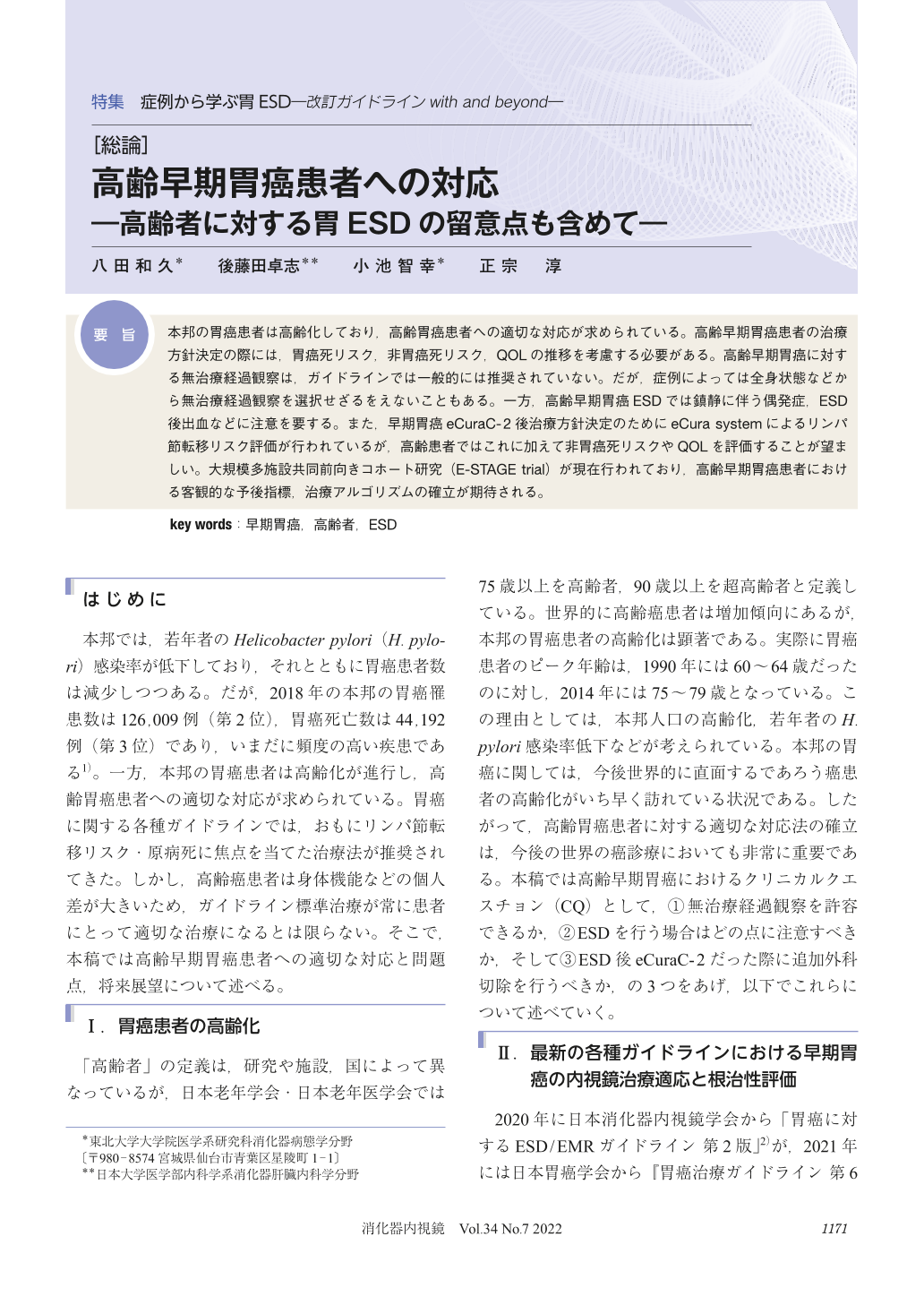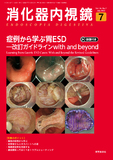Japanese
English
- 有料閲覧
- Abstract 文献概要
- 1ページ目 Look Inside
- 参考文献 Reference
要 旨
本邦の胃癌患者は高齢化しており,高齢胃癌患者への適切な対応が求められている。高齢早期胃癌患者の治療方針決定の際には,胃癌死リスク,非胃癌死リスク,QOLの推移を考慮する必要がある。高齢早期胃癌に対する無治療経過観察は,ガイドラインでは一般的には推奨されていない。だが,症例によっては全身状態などから無治療経過観察を選択せざるをえないこともある。一方,高齢早期胃癌ESDでは鎮静に伴う偶発症,ESD後出血などに注意を要する。また,早期胃癌eCuraC-2後治療方針決定のためにeCura systemによるリンパ節転移リスク評価が行われているが,高齢患者ではこれに加えて非胃癌死リスクやQOLを評価することが望ましい。大規模多施設共同前向きコホート研究(E-STAGE trial)が現在行われており,高齢早期胃癌患者における客観的な予後指標,治療アルゴリズムの確立が期待される。
Because of the ongoing growth of elderly patients suffering from gastric cancer in Japan, the significance of appropriate management for such patients has been increasing. For therapeutic decision-making for elderly patients with early gastric cancers (EGCs), the risk of non-gastric cancer-related mortality and impaired quality of life as well as gastric cancer-specific mortality should be evaluated. Although therapeutic intervention, such as endoscopic submucosal dissection (ESD), is recommended even for elderly patients with EGCs in the current Japanese guidelines, general condition and comorbidities vary across the patients and, thus, no treatment for EGCs is selected in some cases. When ESD is performed for elderly patients, endoscopists should be more careful for complications, such as those accompanied with sedation and post-ESD bleeding. In addition to risk stratification of lymph node metastasis and gastric cancer-specific mortality by the eCura system, it is required to establish a risk assessment method for non-gastric cancer-related mortality and quality of life for decision-making after ESD with eCuraC-2 in elderly patients. Currently, a large-scale multicenter cohort study (E-STAGE trial) is ongoing for establishing an appropriate treatment strategy for EGC in elderly patients.

© tokyo-igakusha.co.jp. All right reserved.


